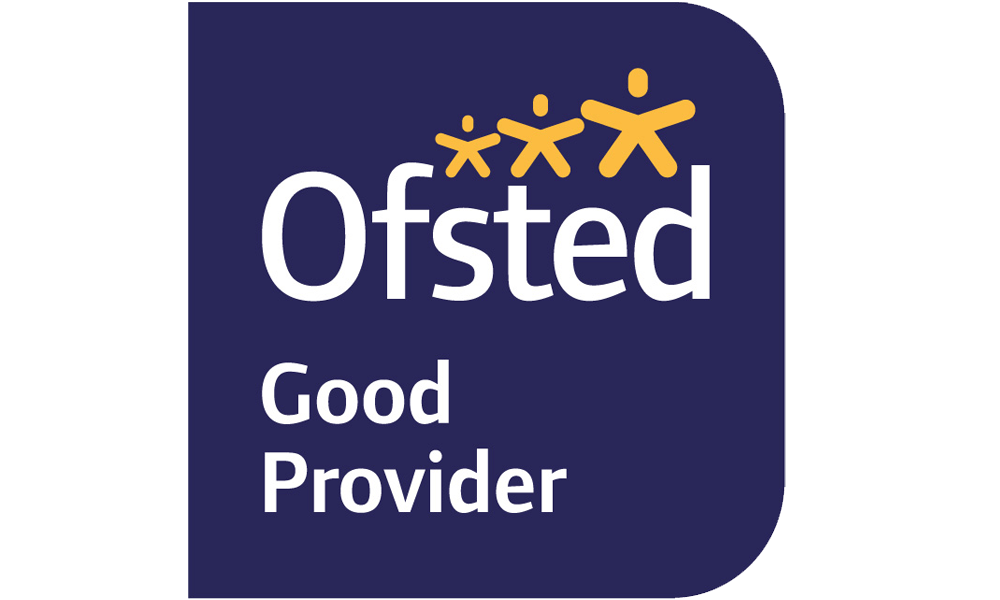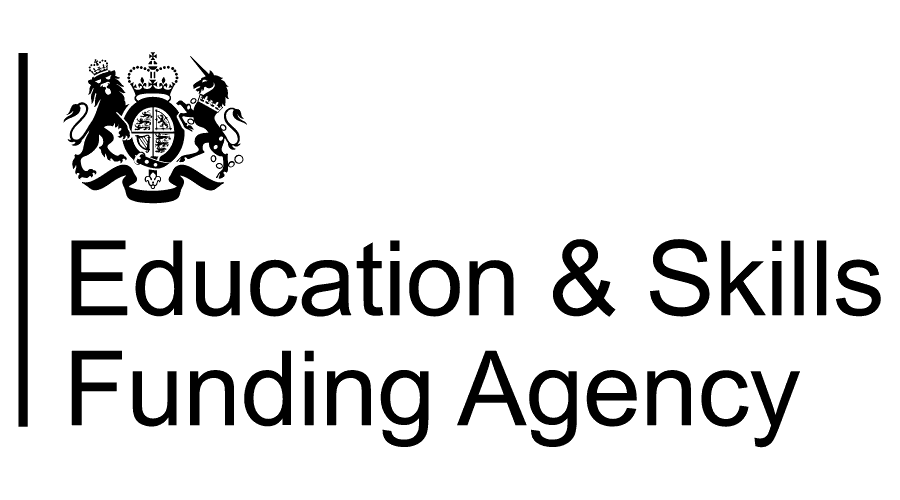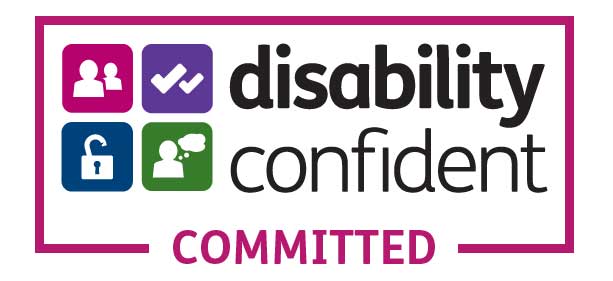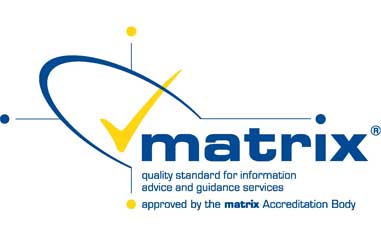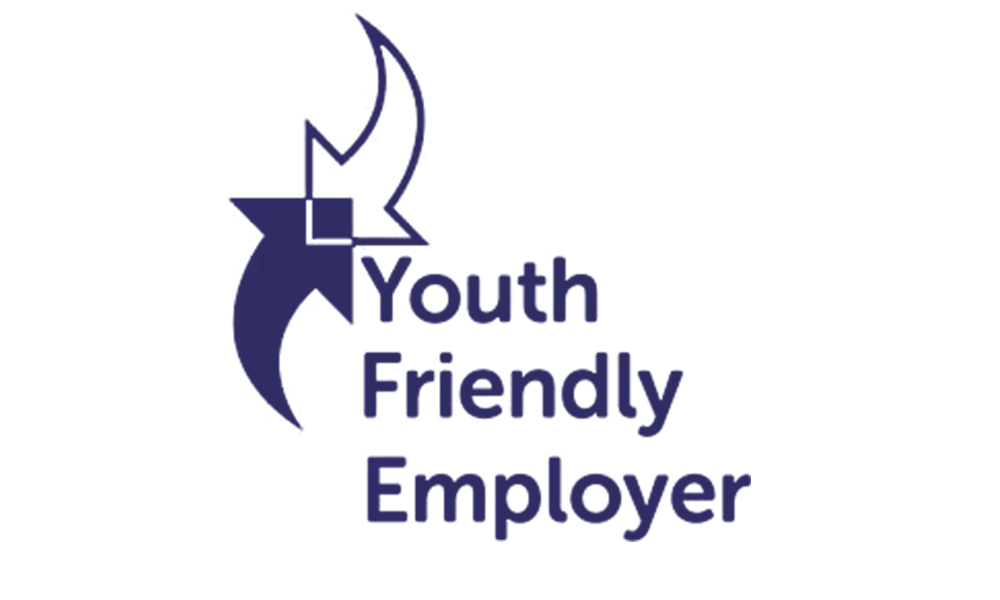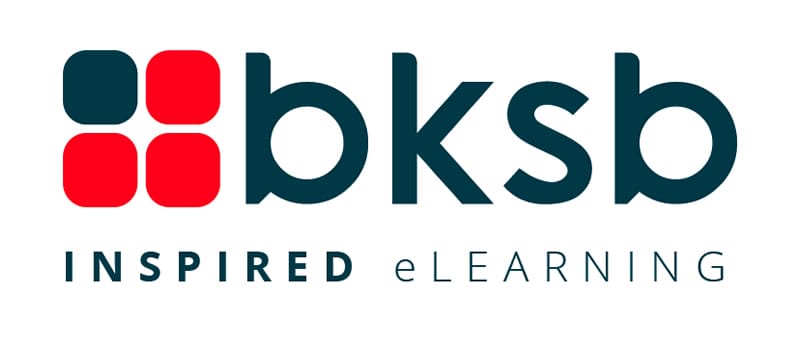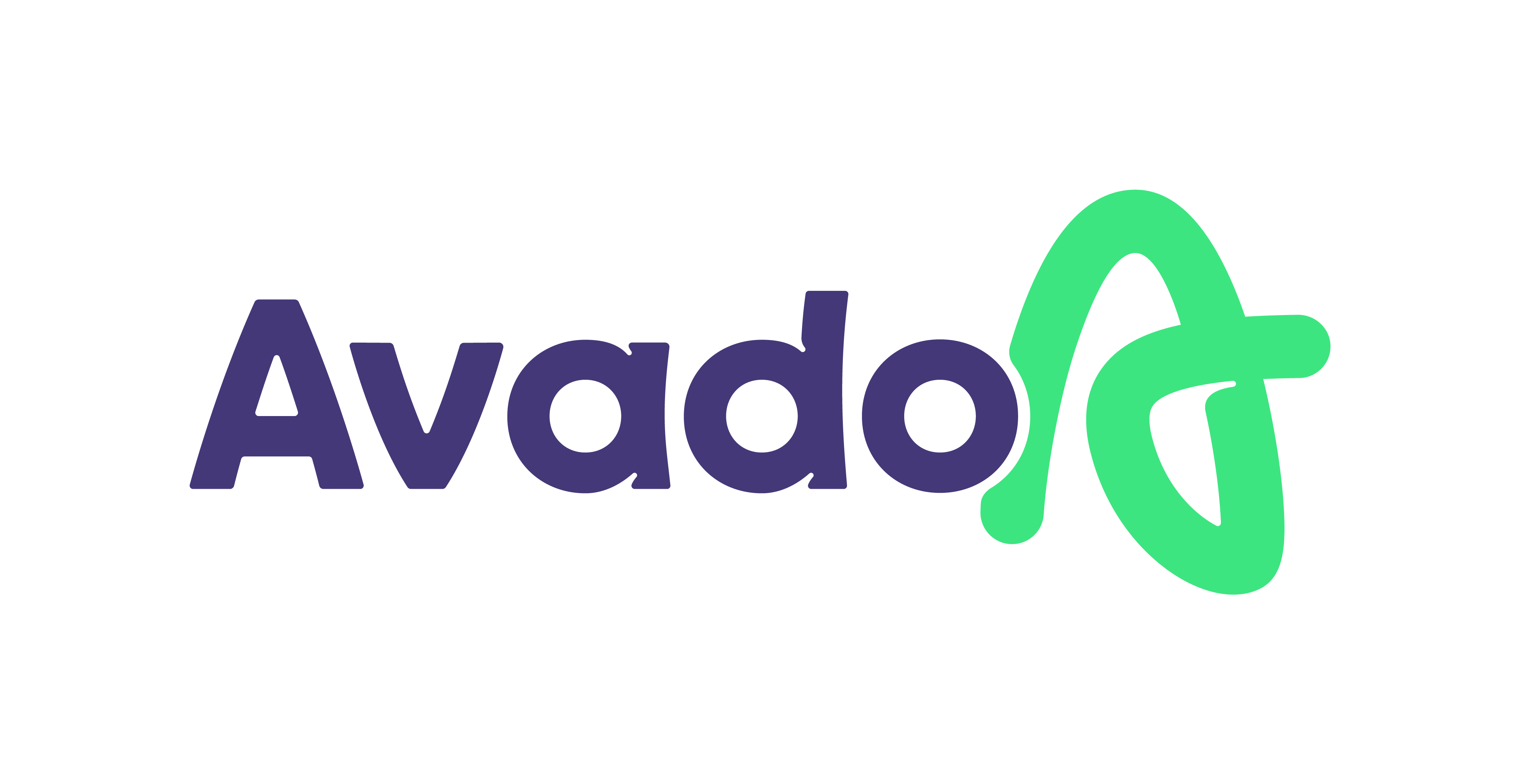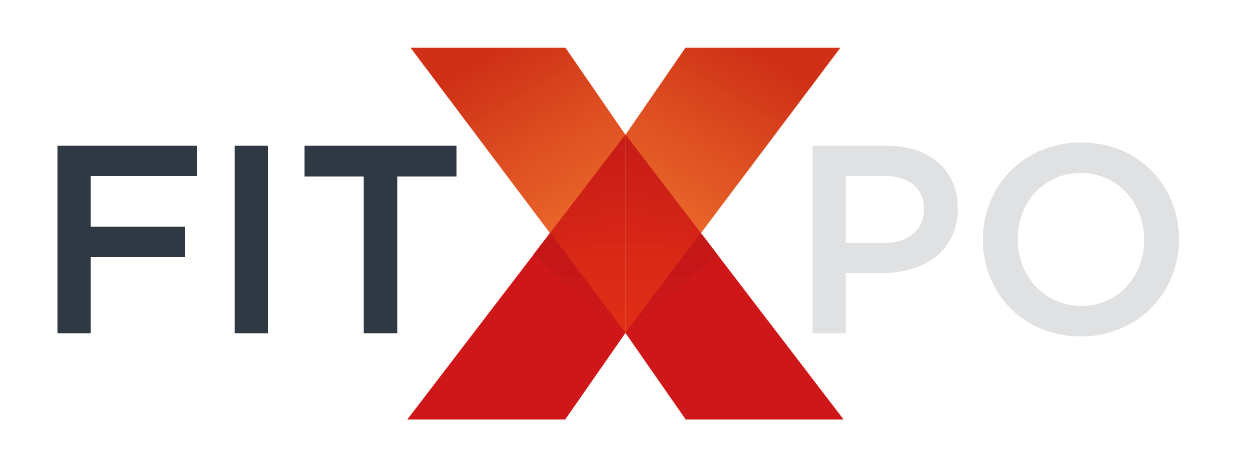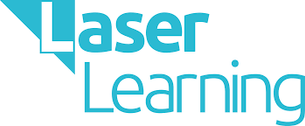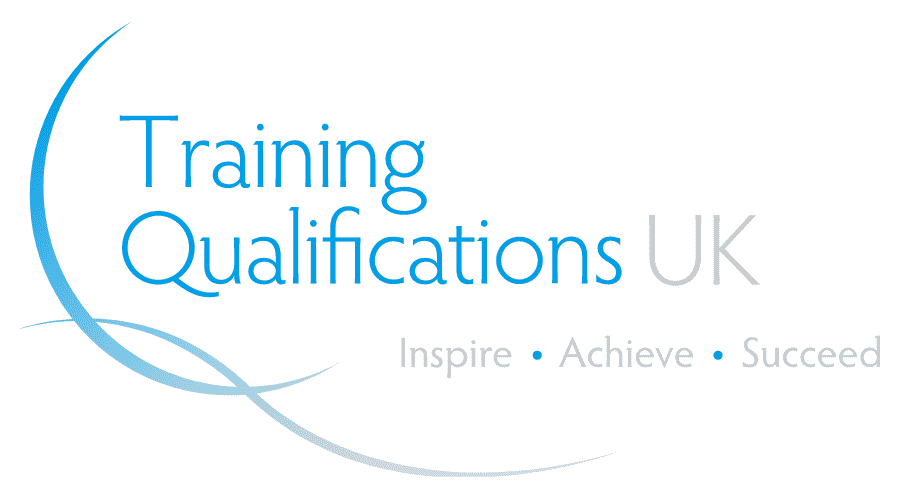Health & Safety
Statement
Eden Training Solutions Limited (Eden) is committed to providing safe and healthy working environments and a culture of ‘safety first’.
We will:
- Prevent accidents and cases of work-related ill health by managing the health and safety risks in the workplace.
- Provide clear instructions, information, and adequate training, to ensure colleagues are competent to do their work.
- Engage and consult with colleagues on day-to-day health and safety conditions.
- Implement emergency procedures – evacuation in case of fire or other significant incident.
- Maintain safe and healthy working conditions, provide, and maintain plant, equipment, and machinery, and ensure safe storage/use of substances.
Responsibilities & Arrangements
Executive Team
The Executive Team will actively monitor matters of safety and health and ensure the business has access to competent advice. The Executive will provide clear direction and set annual targeted objectives.
The Chief Executive Officer is responsible for all matters of health and safety, and delegates day to day operational needs to the Line Managers and Directors.
Chief Executive Officer
Will ensure all operational teams within the business work safely, report matters of concern, actively manage compliance within legislative framework and ensure all safety related policies and procedures are put into practice. Will produce and maintain all policies and procedures and will assist in the production Risk Assessments.
Line Managers
Are responsible for ensuring their teams comply with instructions, attend training sessions as directed by the company and will actively promote safe working practices within their teams. Team meetings will include safety related information and updates.
Colleagues
All colleagues, agency workers, consultants, contractors, and visitors are responsible for their own safety and that of others. You should report matters of concern promptly to your Line Manager, follow all instructions as directed and you should not take unnecessary risks.
Signed,

Lorna Newbould
Chief Executive
Safety Policies
The company approach to managing Health and Safety is to Plan, Do, Check, Act as recommended by the HSE.
Plan
The Chief Executive Officer will produce policies contained in this document and Risk Assessments that are suitable, sufficient, and specific
Do
All Managers are expected to enforce all company policies. All colleagues are expected to comply with instructions and training
Check
Weekly site safety inspections will be used as one method of checking compliance. Accident report submissions, or the absence of such reports are another method.
Act
All colleagues are encouraged to report areas of concern to their Line Manager. Disciplinary action will be taken where a colleague interferes with something provided for safety purposes (includes removal of a safety sign without consent), or disregards instructions issued by a colleague/manager.
Consultation
The business will actively consult its colleagues on matters of safety and health by:
- Information
Written policies, signage and mandatory notices are the main method for compliance - Instruction
Written policies, signage and mandatory notices are the main method for compliance - Training
Online and sessions will be arranged initially at induction and then as part of the company training calendar on a company wide basis. Specific courses or knowledge should be referred for review before booking any courses. - Consultation
Quarterly working group
Fire Safety
Eden premises have a site-specific Fire Risk Assessment (FRA) in compliance with the Regulatory Reform (Fire Safety) Order 2005, this is managed and informed by NM Services.
The premises will have a site-specific Emergency Evacuation Plan (EEP). As a minimum, the following standards are applied to all premises to minimise the risk of fire starting:
- Quarterly testing of fire alarms (Landlord)
- 6 monthly testing of the emergency lights (Landlord)
- Annual servicing of firefighting equipment or as required (NM Services)
- 5 yearly EICR (Landlord)
- Weekly site inspections- management visual checks
Fire Warden Roles & Responsibilities
The premises will have a sufficient number of trained Fire Marshall’s. As a minimum, there will always be 1 marshal available.
The role of the Fire Warden is to:
- Without putting themselves at risk, will ensure evacuation of the building in the event of an emergency
- Assist in completing annual emergency evacuation drills – or as required and identified within the FRA
First Aid at Work
The premise will have, as a minimum, 1 trained First Aider in Emergency First Aid at Work. First Aiders should be identified with appropriate notices positioned in high traffic areas such as next to exits, or within break out facilities.
All accidents, even if no injury is sustained, must be recorded within the accident book, and reported to the CEO within 24hrs.
- As a minimum the following first aid equipment will be available at each premise:
- A fully stocked first aid box with all contents in date compliant with BS85991
- Other as identified from a Risk Assessment
Roles and responsibilities of a First Aider
- Check contents of first aid box quarterly
- Complete accident report
The Chief Executive Officer will report any RIDDOR applicable incidents to the HSE.
Working Environment
The company is committed to providing a safe and healthy working environment. As a minimum, all premises will have:
- A sufficient number of washroom facilities for the number of occupants
- Access to clean fresh water
- Hot beverage making facilities
- Ventilation
- Natural day light
Where possible the company will also seek to include a secure place to store bicycles.
Training
All colleagues or temporary workers will be given specific training for the role they will be undertaking along with any associated equipment, they will be using. In addition, the company also provides specific training at induction and as part of the training calendar.
Online training courses support initial induction and ongoing competence provided by Laser, Video Tile and Noodle Now will include as a minimum General Health & Safety at Work, with additional specific courses including:
- Electrical Safety
- Fire Safety
- Conflict Management
- Manual Handling
- Office Safety
- Slips, trips, and falls
- Stress Awareness
- Noise Awareness
Management Training
- Environment Awareness (Managers)
- Managing Safely (Managers)
Internal courses
- Induction to all new starters to the business
- Fire Warden
- First Aid at Work
- Role specific – job shadowing
Assessing the Risks
The CEO supported by the fellow Directors will produce and update a General Risk Assessments which will be based upon the 5 steps to risk assessing:
- Identify the Hazard
- Decide who might be harmed and how
- Evaluate the risks and decide on the precautions
- Record and implement the findings
- Review and update the assessment annually or at a time of change
Noise
The company recognises that some colleagues, customers, contractors, or temporary workers may be exposed to high levels of noise. A noise assessment can be arranged on request or where this is identified as a risk within the Risk Assessments.
PUWER
The Provision and Use of Work Equipment Regulations 1998 place specific duties on employers to ensure equipment is:
- Suitable for the intended use
- Safe, maintained and inspected regularly
- Only used by people who have received adequate training
- Accompanied by suitable protective measures such as cut-off switches, warning devices and clearly visible signage
- Used in accordance with its designed purpose.
All relevant equipment is maintained and serviced by external competent contractors in line with manufacturers recommendations.
Smoking
Smoking in company premises is prohibited at all times in accordance with the Health Act 2006. Smoking within 5 meters of the premises entrance, or open windows is also prohibited.
Medication
The company accepts that its employees are under no obligation to inform colleagues and/or line managers of any ongoing medical prescriptions unless it can be argued that the medication could compromise health and safety. This is only likely to apply if they undertake certain roles such as driving or operating heavy machinery. The company will however provide support in any necessary storage of medication to support its colleagues.
Please note the above applies to prescribed medication only – please note the alcohol and drugs misuse policy for non-prescribed medication.
Housekeeping
Although the premises have cleaning provisions in place; it is the responsibility of all colleagues or temporary workers to ensure the premises are kept clean and tidy at all times.
- Walkways should be clear of obstruction at all times
- Fire exits and escape routes should be clear and unlocked at all times when there are occupants in the building.
- Any cups or other crockery used should be washed, dried, and placed back into the cupboard.
- Any spillages should be wiped straight away
- Every effort should be made to place your waste in the correct bin.
Asbestos
Eden acknowledges the health hazards arising from exposure to Asbestos and will protect those colleagues/stakeholders potentially exposed to Asbestos as far as is reasonably practicable by minimising exposure through proper control measures and work methods. Asbestos is in a safe state providing it is not disturbed. It is only when Asbestos is disturbed and is in dust form that people are at risk.
Asbestos surveys and the removal of Asbestos are to be conducted by qualified contractors. The landlord carries our regular Asbestos surveys.
Employers & Learners
Eden Training Solutions are responsible for engaging Employers:
- That are competent in managing the health and safety of learners and have processes in place appropriate to the level of risk.
- Liaising with the Employer to ensure that health and safety arrangements are in place appropriate for the level of risk
- Obtaining confirmation of the Employer’s health and safety management arrangements in place.
- Responding as appropriate to any health and safety issues raised by the learner, the Employer, or a member of the Eden team.
The Employer has the prime responsibility for the health and safety of learners and must ensure all relevant legislative requirements are complied with in particular this includes, but is not limited to:
- Taking primary responsibility for the health, safety, and welfare of learners, controlling risks to safety and health appropriately
- Having a written Health and Safety Policy in place (where employing 5 or more) that sets out a clear commitment to managing the health and safety of Learners
- Having procedures for carrying out risk assessments, and bringing the assessment findings to the attention of learners
- Having a clear process for reporting accidents and health and safety concerns. This to include accidents that have happened and near misses
- Ensuring learners receive adequate support and guidance to create a productive and positive experience
- Providing an appropriate health and safety induction and ensuring that instruction, site familiarisation, personal protective equipment, training, and supervisory arrangements are fit for purpose (to include fire precautions; emergency evacuations and first aid arrangements; how to report accidents, incidents, and unsafe conditions)
- Providing a safe working environment and non-discriminatory treatment
- cooperate with Eden as far as is necessary when following up on identified health and safety issues
- Informing Eden of any incidents or near misses involving our learners
- Ensuring insurance is in place to cover liability for any injuries, ill health or property damage sustained that is attributable to the activities of the provision
Learners are responsible for:
- Taking reasonable care of the health and safety of themselves and others
- Co-operating with the Employer on matters of health and safety
- Abiding by the rules and regulations of the Employer
informing the Employer and Eden of any personal factors or changes to personal factors (e.g. health, disability, linguistic or cultural) that may affect the level of risk attached to their programme or may require reasonable adjustments to be made reporting to the Employer and Eden any incidents, issues or near misses that occur or any concerns regarding health & safety
The nature of the three-way partnership between Eden, the learner and the Employer places a responsibility on each party to:
- Be partners in planning and management
- Clearly understand the responsibilities and expectations of each party involved
- Collaborate to ensure opportunities are inclusive, safe, and supported
- Engage in structured opportunities for learning and development
- Establish sustainable relationships and networks
- record outcomes and evaluate feedback to enable continuous enhancement
Engaging Employers and obtaining Employers Declaration:
The Engagement of Employers Health and Safety Agreement is to be used for obtaining initial information of the Employer’s arrangements for managing the health and safety of learners. All Employers being considered must complete this agreement and agree evidence of the health and safety arrangements are in place and that appropriate insurance and health, and safety management systems remain in place. The agreement is valid for the duration of the contract.
Contractors
All contractors who want to work on company premises must:
- Have suitable insurance and have provided a copy of their certificate prior to attending the premises
- Provide evidence of suitable training of the operatives that will be working on site
- Provide suitable and sufficient Risk Assessments and Method Statements and ensure the operative in attendance has a copy with them at all times
- While on site, contractors must comply with any instructions or direction from Eden
Remote Working
Due to the nature of Eden’s business; there may be occasions where colleagues are expected to work from premises that are not controlled by Eden.
In general, colleagues should:
- Abide by all safety instructions given by the premise controlled
- Make themselves familiar with the local arrangements in place for managing risks
- Remain in contact with their Line Manager
- Report any accidents, incidents or near misses to both the local Safety Representatives, the colleagues Line Manager and adhere to the company Accident Reporting Policy
Awareness raising and promotion to Staff, Learners, and Employer
To safeguard and educate our staff, learners, and employers (and other stakeholders) the following activities are employed as part of the Steps to Success process throughout our programmes:
- A clear and effective Health and Safety Policy is available
- A clear induction process for staff – Job Ladder
- Promotion of said Policy through the Learnership and Employer Onboarding
- Promotion of the Policy through the website
- Monthly Hot Topics promoted to learners and employers via e-mail and Social Media
- Learning resources attached to learners Personal Learning Plan
- Promoted via the Learner Review process
- Discussed as part of KIT days, OTLA periods and via standardisation activities;
- Mandatory training for all staff
Implementation & Checks
Lorna Newbould is the designated member of staff, who is assigned to act upon all health and safety matters
Training & Communication
The policy is available to all employees, learners and contractors through induction and updates including midpoint and exit IAG procedure. The policy also applies to all employees and contractors, undertaking work on our behalf
We will:
- Ensure the reporting process is clear and transparent with clear lines of communication and documentation
- Ensure all personal data will be processed in accordance with the requirements of the General Data Protection Regulation 2018
- Require staff to adopt and abide by this Policy and these Procedures
- Have documented procedures in place to record or conduct appropriate actions when concerns are apparent
- Respond to any concerns over health and safety with this policy
- Review and evaluate this policy on a regular basis
- Complete employee checks to ensure all team members have up to date CPD.
Name
Area of Resonsibility
Line managers (IOSH)
Gary Newbould (NEBOSH)
Lisa Whittick (NEBOSH)
Overall responsibility of H&S (ISOH)
Advisory Responsibilities
Advisory Responsibilities
The site representative will ensure that all safety procedures are adhered to and will report areas of non-compliance to senior team:
Name
Lisa Whittick
Site
Unit 8, Courtyard 31, Normanton, WF6 1JU
Implementation of Policy
The Managing Director will ensure that all employees have access to the Health and Safety policy which is located in the office and in the policy file on the organisation server.
Each employee will be given a copy of the general policy on commencement of his or her employment.
The employees line manager will ensure that all employees are given a copy of the Health and Safety Policy and will keep and maintain records that all workers have received a copy of said policy.
Consultation with Employees
Lisa Whittick is the Employee Representative on Health and Safety matters. There is a Health and Safety committee with quarterly meetings facilitating consultation with employees.
Risk Assessments
Risk assessments will be undertaken for work activities and systems annually. The results of the risk assessments will be recorded in writing, safety procedures produced and implemented to ensure adequate levels of health safety and welfare.
Risk assessments are to be reviewed regularly to ensure that they are still appropriate to the tasks covered. They will also be reviewed when new equipment is installed, when a new system of work set up or when the business changes premises.
Lisa Whittick shall be responsible for undertaking the organisation risk assessments as required by the Management of Health and Safety at Work Regulations 1999.
The results of any risk assessment shall be recorded and kept in the office Action required to remove or control the risks identified will be approved by Lorna Newbould who will be responsible for ensuring that any required action is implemented.
Assessments will be reviewed every year or when the work activity changes, whichever is soonest.
All employees when visiting sites are to ensure that they adhere to the health and safety policy. The pre‐vet that Eden Training Solutions uses for students can also be used for employees entering the business.
Employees are asked to complete an online driving course and make regular safety checks on their vehicle before they travel.
Hands free kits are to be used in the vehicle always. At no time will Eden Training Solutions be accountable for any fines or charges that have been caused by the individual.
It is important that employees maintain a good driving posture as not to injure or damage their spine or neck.
Accidents, First Aid and near misses (reportable under RIDDOR)
The First Aid Box is kept in the kitchen and also one at reception.
Lorraine Smith is the First Aider and is responsible for ensuring that the First Aid Box’s are kept fully stocked and equipped.
All injuries, incidents, and dangerous occurrences at work involving employees or members of the public must be reported and recorded in the Accident Book which is located on reception desks at both sites.
The following must be reported under RIDDOR UK:
- Deaths ‐ (Reported immediately) 0845 300 99 23 UK
- Major injuries to be (reported immediately) 0845 300 99 23 UK
Reportable major injuries are:
Deaths – All deaths to workers and non‐workers must be reported if they arise from a work-related accident, including an act of physical violence to a worker. Suicides are not reportable, as the death does not result from a work‐related accident.
Specified injuries to workers
The list of ‘specified injuries’ in RIDDOR 2013 (regulation 4) includes:
- Fracture, other than to fingers, thumbs and toes;
- Amputation of an arm, hand, finger, thumb, leg, foot or toe;
- Permanent loss of sight or reduction of sight;
- Crush injuries leading to internal organ damage;
- Serious burns (covering more than 10% of the body), or damaging the eyes,
- Respiratory system or other vital organs;
- Scalpings (separation of skin from the head) which require hospital treatment;
- Unconsciousness caused by head injury or asphyxia;
- Any other injury arising from working in an enclosed space, which leads to hypothermia, heat‐induced illness or requires resuscitation or admittance to hospital for more than 24 hours.
Over‐seven‐day injuries to workers – this is where an employee, or self‐employed person, is away from work or unable to perform their normal work duties for more than seven consecutive days (not counting the day of the accident)
Health and Safety Executive
Reporting accidents and incidents at work Page 3 of 5
Injuries to non‐workers work‐related accidents involving members of the public or people who are not at work must be reported if a person is injured and is taken from the scene of the accident to hospital for treatment to that injury. There is no requirement to establish what hospital treatment was actually provided, and no need to report incidents where people are taken to hospital purely as a precaution when no injury is apparent.
If the accident occurred at a hospital, the report only needs to be made if the injury is a ‘specified injury’ (see above). Reportable occupational diseases
Employers and self‐employed people must report diagnoses of certain occupational diseases, where these are likely to have been caused or made worse by their work. These diseases include (regulations 8 and 9):
- Carpal tunnel syndrome;
- Severe cramp of the hand or forearm;
- Occupational dermatitis;
- Hand‐arm vibration syndrome;
- Occupational asthma;
- Tendonitis or tenosynovitis of the hand or forearm;
- Any occupational cancer;
- Any disease attributed to an occupational exposure to a biological agent.
https://www.hse.gov.uk/riddor/report.htm
By law, workplace accidents must be reported to the Health and Safety Authority, as soon as possible. An Accident Investigation Form should also be completed for both employees and learner accidents.
Lorna Newbould is responsible for investigating any incidents, injuries or dangerous occurrences and is also responsible for advising Management and staff of any measures that need to be put in place to minimise the risk of any incidents reoccurring. She is responsible for acting on investigation findings to prevent a recurrence.
Health Surveillance
Health Surveillance is required for the following jobs: Driving Arrangements will be made by notification from DVLA of medical due. Records will be kept at Head Office by HR of copies of Licence, MOT and Insurance.
Emergency Procedures – Fire and Evacuation
Lorna Newbould is responsible for ensuring that the Fire Risk Assessment is undertaken and implemented. This is in accordance with landlord instructions at the site. Escape routes are checked by the site representative in consultation with Lorna Newbould, on a regular basis. Fire extinguishers are maintained and checked by an appointed supplier, every year.
Emergency evacuations will be held every year.
Safe Equipment
Lorna Newbould is responsible for identifying all equipment needing maintenance. Lorna Newbould is also responsible for ensuring effective maintenance procedures are drawn up and that all identified maintenance is implemented and that the record of any inspection, servicing or maintenance of equipment is recorded and that records are maintained.
Any problems found with equipment should be reported to Lisa Whittick. Lorna Newbould will check that new equipment meets health and safety standards before it is purchased.
Line managers of employees are responsible for ensuring that employees are given adequate information, instruction and training in relation to the use of equipment. They are also responsible for ensuring that records of any information, instruction and training are kept and maintained where necessary.
Safe Handling and Use of Substances (COSHH) Chemicals or Substances Hazardous to Heath
Lorna Newbould will be responsible for identifying all substances that need a COSHH assessment.
Lorna Newbould will be responsible for undertaking COSHH assessments and for ensuring that records
are kept and maintained where necessary and will be responsible for ensuring that all actions identified in the assessments are implemented.
Lorna Newbould will be responsible for ensuring that all relevant employees are informed about the COSHH assessments and will check that new substances can be used safely before they are purchased. She will ensure that assessments are reviewed every year or when the work activity changes, whichever occurs soonest.
Asbestos Policy for the building
Management responsibility for the policy is dictated by the landlord who has ownership of the premises and responsibility of all tenants within. We take responsible steps to ensure we are compliant with all statutory duties in relation to asbestos management as outlined in their policy.
Personal Protective Equipment (PPE)
Line managers will be responsible for ensuring that, where the need for PPE is identified, that it is suitable for the activity it is required for and that it is suitable for the individual using it.
Line managers will be responsible for ensuring that PPE, in their area of responsibility, is maintained, clean and that it is replaced when necessary. It is our organisation policy that all PPE is issued free of charge.
Line managers will be responsible for ensuring that PPE is suitably stored when it is not being used.
Lorna Newbould will be responsible for giving training, information and instruction to employees on the use of PPE and how to look after it. She will also be responsible for keeping and maintaining records of the training, information and instruction given to employees.
Display Screen Equipment
Line managers via site representative will be responsible for ensuring that display screen equipment workstations are assessed and will ensure that records of the assessments are kept and maintained. Action required in removing or controlling of the risks identified will be approved by Lorna Newbould.
Assessments will be reviewed every year, when the work activity changes, whenever you change location, or whichever is soonest.
Lorna Newbould via site representative will be responsible for providing training and information for display screen equipment users and will keep records of any training and information that is provided.
Online training is available for employees to access regarding the use of Display screen equipment safety.
It is the organisations policy to ensure that anyone using a display screen as a significant part of their everyday work is entitled to have appropriate eye and eyesight tests from an optician or doctor if they are needed for work, if requested by the employee.
Line managers will be responsible for authorising the reimbursing staff (Maximum of £35) for eye and eyesight tests if requested by staff and for keeping and maintaining records of any requests.
Electrical Equipment (Includes PAT Portable appliance testing)
It is the organisations policy to ensure that any electrical system at work is safe to use and properly maintained.
Lorna Newbould will be responsible for ensuring that all electrical installations and electrical equipment are regularly examined.
The electrical installations will be examined on an on‐going basis and records of any examinations or works carried out on the electrical installations will be kept and maintained by a 17th edition qualified electrician.
The electrical appliances and cables will be checked on an on‐going basis by a 17th edition qualified electrician.
Faulty equipment should be reported immediately to Lorna Newbould via the site representative and labelled faulty and not used until it has been repaired. Lorna Newbould will be responsible for ensuring that staff are given information or advice on what to do if they suspect that the electrical equipment or electrical system is unsafe. She will also ensure that records of any advice or information given to staff are kept and maintained.
Site representative via Lorna Newbould will be responsible for keeping and maintaining records to show that any faults have been rectified.
Welfare
It is the policy of the organisation to provide enough clean toilets and wash basins with hot and cold running water, soap and drying facilities for those expected to use them.
The organisation will provide drinking water and ensure that it is free from contamination, accessible by all employees, ensure that cups or a drinking fountain is provided and that taps and containers are clearly and correctly labelled as potable drinking water.
The organisation shall ensure that there is a suitable seating area for workers to use during breaks, that it is kept clean and stored where food will not get contaminated. It is the organisation’s policy to provide a working environment where people can work without being irritated by tobacco smoke (which includes e-cigarettes). Any issues regarding toilet facilities, drinking water or other welfare facilities should be reported to Line managers.
It is the policy of the organisation to ensure that traffic routes are kept in good repair and are free from obstruction. It is also the policy to the organisation to take precautions to control the risks of slips and trips in the workplace. Any spill or contamination on floors should be notified immediately to the site representative and be dealt with quickly but employees should not put their own health and safety at risk.
The organisation will ensure that lighting is suitable and sufficient to allow staff to work and move around safely.
The organisation and employees are all required to take reasonable steps to ensure that a place of work is kept free from foreseeable hazards. In particular, access and egress routes must be kept clear of obstructions. This includes ensuring fire exits and access routes are kept clear, cables do not trail across pedestrian routes and that obstacles are quickly removed. In addition, safety provisions such as fire doors should not be propped open or fire extinguishers obstructed.
Driving at Work
It is the policy of this organisation to ensure that staff who are required to drive as part of their work activities are competent to drive. Staff are responsible for daily checks and to ensure that the organisation vehicle is kept in good working order; staff are to report any defects or problems.
Line Managers will be responsible for ensuring that staff who are required to drive are competent to drive and will keep and maintain records on checks carried out on their driving licenses.
All staff are responsible for ensuring that any vehicle accident is reported to Lorna Newbould It is the organisation’s policy to ensure that an employee using their own vehicle for the purpose of work must also have insurance that covers them for Business Use. Line Managers are responsible for ensuring that staff required to have insurance that covers them for Business Use and is also responsible for keeping and maintaining records of any such checks.
Lone Workers
It is the policy of this organisation that staff who work by themselves without close or direct supervision or those who have to visit other premises, should make sure their colleagues or manager know where they are going and when they will be back and should record their visit in their outlook diary.
It is the organisation’s Policy to advise staff who work by themselves without close or direct supervision or those who have to visit other premises, to take a mobile phone with them where practical.
It is the organisation’s Policy to ensure that no staff member will work alone on any task that has been assessed as having any risks related to lone working. Where a risk is identified a lone worker checklist must be completed.
Information, Training and Supervision
The Health and Safety Law Poster is displayed in reception.
A Copy of the Organisation’s Certificate of Employers and Public Liability Insurance will be displayed in the reception area. Health and Safety advice is available from: Lorna Newbould/Line managers/Lisa Whittick/Gary Newbould.
Supervision of young workers / trainees will be arranged / undertaken / monitored by the appropriate member of staff approved by senior managers.
Induction training will be provided for all employees by the new starters line manager and a record of any training will be kept and maintained on You Manage.
Lorna Newbould and site representatives are responsible for ensuring that employees of other Companies, Contractors or Visitors are given relevant health and safety information.
Environment
As per the TLA Policy Eden-ts continues to promote the use of technology to deliver teaching, learning and assessment. We use the latest in technology to provide individuals and business with the skills they need to succeed. By using remote means we are reducing the mileage our staff do on the road as well as reduce the amount of paper used in creating portfolios of evidence with our learners.
Eden-ts is committed to minimising the environmental impact that its business practices have on its surroundings and promoting environmentally sound and sustainable practices. This includes:
- Hazardous and non-hazardous waste generation, storage and disposal
- Consumption of electricity and water
- Use of resources and consumables
- Procurement and purchasing
- Transport
In promoting and monitoring we commit to:
- Providing training for staff working for and on behalf of Eden-ts to ensure working practices are consistent with the policy and within an environmentally aware culture;
- Regularly communicating our environmental performance to our employees and other significant stakeholders;
- Developing our management processes to ensure that environmental factors are considered during planning and implementation;
- Monitoring and continuously improving our environmental performance in accordance with our environmental objectives and targets.
Waste Management
Eden Training Solutions will undertake all efforts to ensure their compliance with environmental policy and obligations under the Act.
All waste shall be disposed of in the most appropriate and environmentally sensitive way possible. If necessary, for compliance, suitably qualified specialist contractors shall be engaged for disposal.
Disposal of waste shall follow the waste management hierarchy below:
- Prevention
- Minimisation
- Recycling
- Treatment
- Energy recovery
- Volume reduction and Disposal
Training and information shall be provided to employees so that they are aware of waste management procedures and able to carry them out safely.
Sustainability
Eden-ts is a learning provider who aim to transform the skills and productivity of the working population by using technology to bring people together to work, share and learn online. This policy sets out our commitment to achieving our sustainability goals while delivering business with and for our stakeholders.
We are committed to working in a way that considers the long term needs of those affected by our activities and will ensure we minimise our negative impacts on the environment and have a positive impact on the communities in which we operate. We expect the same commitment from our supply chain partners and are committed to engaging with them on sustainability.
Sustainability will be achieved throughout the business by:
- Continuous improvements of our on-line systems
- Continual monitoring of our activities and their impact
- Information, instruction, training and supervision with our staff and throughout our supply chain
- Ensuring competent people provide professional support, guidance and monitoring in line with our policy
- Sharing good practice within our business and supporting our supply chain
Manual Handling
The organisation policy is to comply with current and future legislation under manual handling regulations. The musculoskeletal injuries caused by poor manual handling practices can be significantly reduced by taking appropriate measures to remove or reduce the risk of injury from manual handling operations by:
- Avoiding manual handling, so far as reasonably practicable, by eliminating the need for the load to be moved or by use of mechanical devices.
- Risk Assessment manual handling operations, taking into account the task, the load, working environment, results of other relevant risk assessments and individual capabilities. Risk assessments must be recorded and reviewed at least annually.
- Use of mechanical devices provided for handling loads, for example trolleys, barrows and chain hoists.
- Providing suitable information, training and supervision to employees engaged in manual handling operations.
- Employees have a duty to make full and proper use of any equipment or system of work provided by the organisation for the purposes of safer handling operations. They must also report any faulty equipment or unsafe system of work.
Working at Height
The organisation policy is in accordance with the Work at height regulations 2005. The organisation will comply with all current and future legislation.
Work at height includes work areas above and below ground that require access for works. (Staircases are not included). The organisation will ensure that all work at height is fully planned and all risks associated with the work are assessed.
All works will be carried out in a safe manner and any equipment selected for the task is suitable and in full working order.
To reduce risks the following can be used:
- Reduction in the height of the fall
- Notify appropriate colleagues in working area
PUWER‐ Provision and Use of Work Equipment Regulations 1998
In general terms, the Regulations require that equipment provided for use at work is the following:
- Suitable for the intended use
- Safe for use, maintained in a safe condition and inspected to ensure this remains the case
- Used only by staff who have received adequate information, instruction and training
- Accompanied by suitable safety measures, e.g., protective devices, markings, warnings Equipment covered by the regulations
Any equipment which is used by an employee at work is covered, for example hammers, knives, ladders, drills, circular saws, lifting equipment, dumper trucks and vehicles.
If employees provide their own equipment, it, too, will be covered by PUWER and they are to make sure it complies and is in safe working condition.
Employees must report any tools/equipment defects immediately, any tool or piece of equipment deemed unsafe is to be removed from the workplace.
All equipment that is hired must conform to the policy and regulations; competent persons are to inspect all hired equipment before use.
Smoking
This section of the policy has been developed to protect all employees, service users, customers and visitors from exposure to second–hand smoke and to assist compliance with legislation that prohibits smoking in enclosed public spaces. Smoking in this policy includes Vaping Style/E-cigarettes.
Exposure to second–hand smoke, also known as passive smoking, increases the risk of lung cancer, heart disease and other illnesses. Ventilation or separating smokers and non-smokers within the same airspace does not completely stop potentially dangerous exposure.
Implementation
It is Eden-ts’ policy that our workplace is smoke-free, and all employees have a right to work in a smoke-free environment. Management are responsible for the implementation and monitoring of this policy and all employees are obliged to adhere to and facilitate the implementation of this policy.
Smoking is prohibited throughout the entire workplace. This policy applies to all employees, workers and visitors.
In certain circumstances employees may be permitted to smoke outside the workplace with the express permission of management. Where this is permitted, management will advise employees of the designated areas.
Exemptions
Employees will be notified by Management of any areas within the premises which are exempt from this policy.

